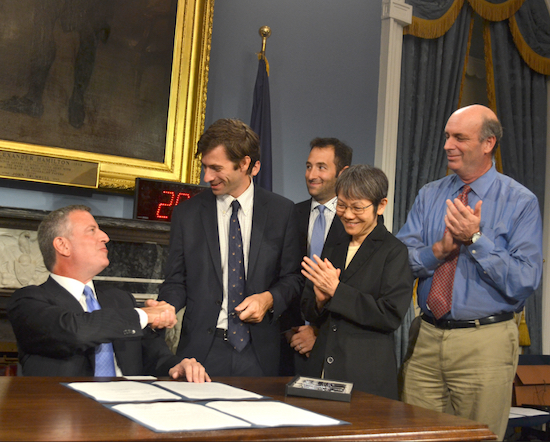De Blasio signs Levin bill to ban fracking products
Council member says it will safeguard water supply

Councilmember Stephen Levin (right) congratulates Mayor Bill de Blasio at the bill signing ceremony as environmentalists look on. Photo courtesy of Levin’s office
In a move hailed by environmentalists, New York has become the first city in the country to ban the use of oil waste products obtained through the controversial process of hydro-fracking.
Mayor Bill de Blasio signed into law a bill prohibiting the use of oil and natural gas waste products in the city.
The products are often used to de-ice roadways in the winter, officials said.
